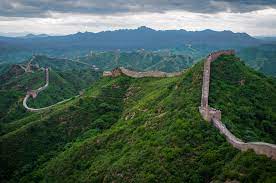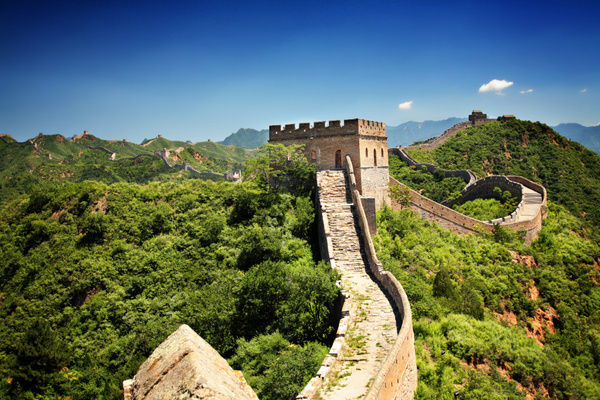Imagine that you’re a member of the fearsome Mongol cavalry: Mounted on horseback, equipped with the era’s ultimate weapons technology and the skills to wield them with deadly effect. You’re part of one of the most devastating military forces of its time, seizing and burning cities, toppling empires. Now you’re galloping over the plains of northern China toward the wealthy cities of the Ming dynasty.
But in the distance looms a massive obstacle, something your ravening horde can neither burn nor topple. You smash against its gray bulk like waves against the shore, your weapons, and skills counting for almost nothing as you are turned back by the implacable reality of stone and mortar. Unless you’re dead, you retreat. And as you retreat, you wonder:
What just happened?
The Great Wall of China just happened.

The Chinese built the wall as a masterpiece of defensive architecture. While Chinese troops controlling these barriers certainly helped to thwart the attacks of some would-be invaders. In other words, sometimes it helped protect China, and other times it didn’t.
On the other hand, it was also a display of imperial China’s wealth, architectural expertise, and engineering prowess. On this front, it undoubtedly succeeded and continues to do so, as the ruling Communist Party has adopted the wall as a patriotic symbol.
But the Great Wall didn’t guarantee safety. The wall isn’t contiguous — it was initially used to bulk up defenses, where the geography was less challenging for armies to traverse. In some cases, intruders simply marched around various sections. One of the wall’s most infamous failures, however, brought about the end of an entire dynasty of rulers.
“It had offered little protection to the greatest wall builders of all, the Ming Dynasty, from their most threatening adversaries, the Manchus to the northeast,” said Julia Lovell. a professor of modern Chinese history and literature at the Birkbeck University of London. A disaffected Chinese general simply opened the gates to let the Manchus into China, Lovell told Live Science. The Manchus then went on to found the Qing dynasty in 1644, which lasted until 1912. Because of its ultimate failure, by the 19th century, many people saw the Great Wall as “an enormously expensive strategic folly.











